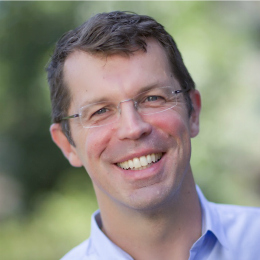From health-care providers, announcements do more than conversations to improve HPV vaccination rates
December 5, 2016
In an effort to increase uptake of the human papillomavirus (HPV) vaccination, researchers at the University of North Carolina at Chapel Hill evaluated the effectiveness of training health-care providers either to make presumptive announcements about the vaccine or to engage in participatory conversations with families. Study results showed that only the announcement training led to a meaningful increase in vaccine initiation.
The full article, titled “Announcements versus Conversations to Improve HPV Vaccination Coverage: A Randomized Trial,” was published online Dec. 5 by the journal Pediatrics.

Dr. Noel Brewer
Co-authors from the University of North Carolina at Chapel Hill include Noel T. Brewer, PhD, professor of health behavior in the UNC Gillings School of Global Public Health, and Teri L. Malo, PhD, postdoctoral research associate, in the UNC Lineberger Comprehensive Cancer Center, where Brewer also is a member.
National recommendations call for all 11- and 12-year-olds to receive the HPV vaccination. The majority (56 percent) of adolescents aged 11 to 17 in the United States have now received one dose of the vaccine, but completion of the multi-dose series remain low. Strengthening provider recommendations is a critical approach for increasing this preventative coverage.
Accordingly, in 2015, researchers conducted a six-month randomized clinical trial with 30 pediatric and family medicine clinics in central North Carolina. Clinics either received no training (forming a control group), announcement training or conversation training.
The training in announcements coached providers to share brief statements that assumed parents would be ready to vaccinate. (Similar presumptive announcements commonly are used for early childhood vaccines and other routine medical care.)
The training in conversations, on the other hand, encouraged providers to engage parents in an open-ended discussion that could possibly build rapport and thus increase parental openness to HPV vaccination for their children.
After the trainings were completed, the North Carolina Immunization Registry collected data on the 17,173 patients aged 11 or 12 years who visited participating health-care facilities during the next six months. At the end of the study period, increases in HPV vaccination coverage were 5.4 percent greater for patients in clinics that received the announcement training versus for patients in control clinics. The coverage rates did not change in clinics that received the conversation training.
Based on these findings, the researchers recommend training health-care providers to use presumptive announcements as a strategic approach to increase HPV vaccination uptake in young adolescents.
Gillings School of Global Public Health contact: David Pesci, director of communications, (919) 962-2600 or dpesci@unc.edu
